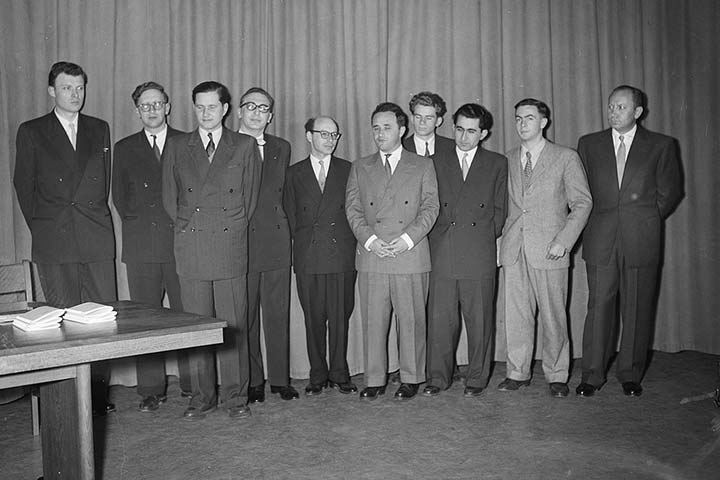The Candidates' Tournament speaks for itself as an all-important event. With Magnus Carlsen's decision to forgo his title defense in 2023, the result of this year's edition has become doubly significant. Barring a reconsideration from Magnus, the tournament's winner, Ian Nepomniachti, and the runner-up, Ding Liren, will contest the world title in the 2023 World Championship Match.
When was the Candidates Tournament established, and how did it become integral to the world championship cycle? First held a few years after FIDE became chess' governing body, the Candidates Tournament has more than served its ends, but has also had its share of controversies and remakes. It is a story unto itself.
Alexander Alekhine was the last of the world champions to enjoy the privilege of selecting challengers to his title. Shortly after his death in 1946, FIDE organized The Hague World Championship of 1948 to determine the new World Champion. The tournament being the first of its kind, and without a preceding basis for drawing its field, FIDE called on the participants of the great AVRO 1938 Tournament.
Ten years after AVRO, its participants remained as the world's strongest players. All came to compete except Jose Raul Capablanca who had also passed away, Reuben Fine who declined, and Salo Flohr, whom Vassily Smyslov replaced. Mikhail Botvinnik won the five-cycle round-robin tournament to become the 6th World Champion.
The Hague 1948 - Final standings
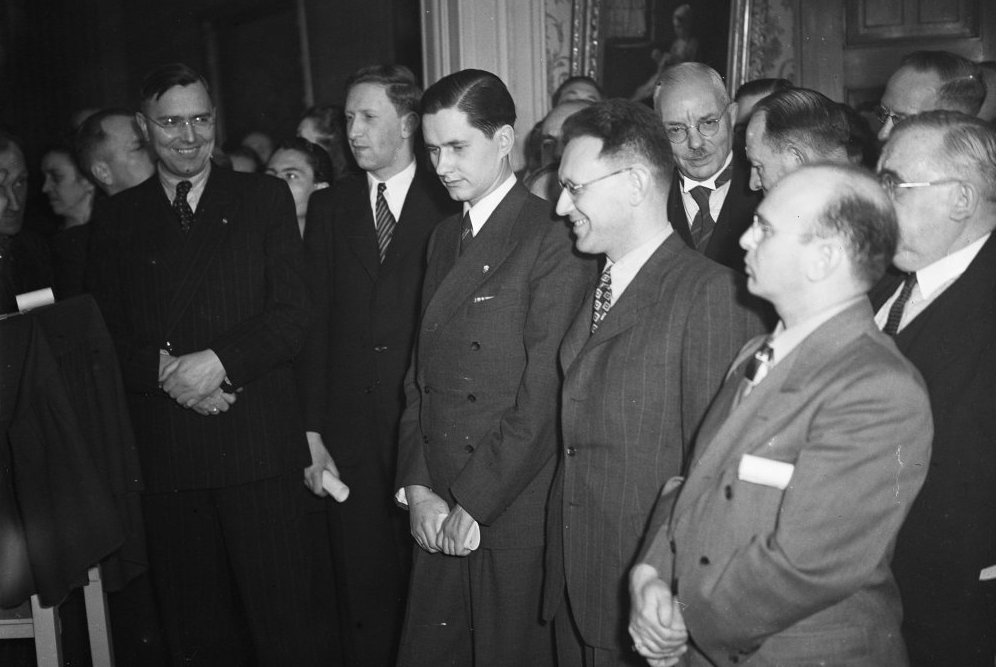
The participants of The Hague 1948 | Photo: J.D. Noske, Nationaal Archief, from left to right: Max Euwe, Vassily Smyslov, Paul Keres, Mikhail Botvinnik and Samuel Reshevsky
As FIDE was organizing the 1948 World Championship, it also determined to establish once and for all a rigid selection process that would thereafter determine challengers for the world title. Whoever was to win The Hague 1948 was to meet the challenger produced out of this process in a world championship match.
FIDE settled on a three-year cycle where winners in regional tournaments called “Zonals” qualified for the intercontinental competition known as the “Interzonal.” Top finishers of the Interzonal, in turn, qualified for the Candidates' Tournament.
This cycle ran for the very first time in 1948-1951. In Budapest 1950, ten candidates competed in the first ever Candidates Tournament. David Bronstein and Isaac Boleslavsky tied for first at the end of the double round-robin event, but Bronstein edged Boleslavsky in the playoffs to become Botvinnik's challenger in the 1951 World Championship Match.
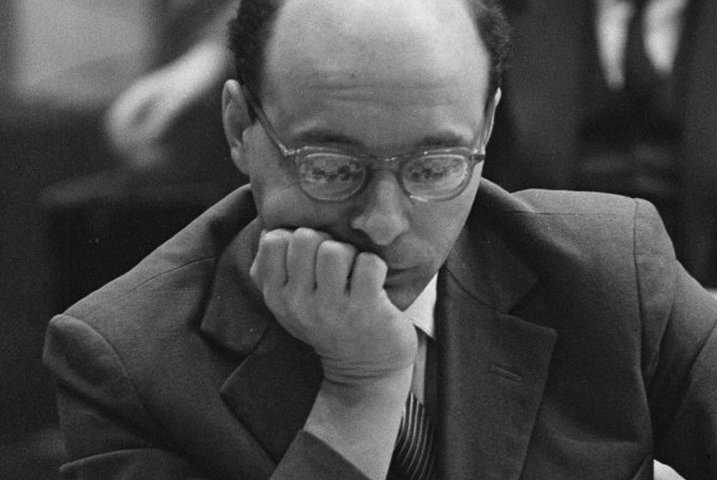
David Bronstein | Photo: Wikipedia
The 24-game match, also the first ever world championship FIDE administered, ended drawn.
Budapest 1950 - Final standings
The second Candidates Tournament is perhaps the most famous ever held, due largely to Bronstein's memorialization of it in his classic book, Zurich 1953.
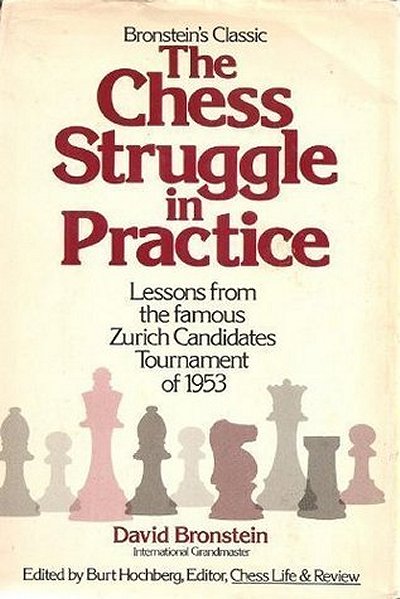
This time, fifteen top flight grandmasters came to battle, with Vassily Smyslov winning by two points after twenty-eight grueling rounds. He suffered only one defeat.
Zurich 1953 - Final standings
Smyslov's 1954 World Championship Match with Botvinnik also ended drawn, but he earned a second shot at the title when he won the third Candidates Tournament, Amsterdam 1956. Smyslov almost duplicated his performance in Zurich 1953, winning the event by a 1.5 margin and suffering only one loss, this time against an upcoming Boris Spassky.
Amsterdam 1956 - Final standings
Smyslov did dethrone Botvinnik in the 1957 World Championship Match, but Botvinnik regained the title in their rematch a year after. The following Candidates Tournament, therefore, Zagreb 1959, was again for the right to challenge Botvinnik.
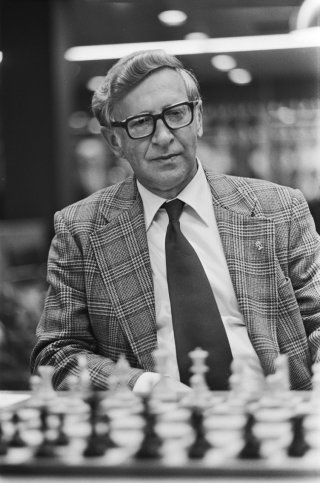
Vassily Smyslov 1977 | Photo: Koen Suyk, via Wikimedia Commons)
Zagreb 1959 is famous as the Candidates Tournament where Mikhail Tal's wizardly and daring, intuitive play was on full display. While his double-edged style was ineffective against Paul Keres against whom he lost three times, it befuddled his other opponents, especially the young Robert Fischer. Tal swept Fischer and ended up winning the quadruple round-robin event by a 1.5 point margin.
Zagreb 1959 - Final standings
Tal dethroned Botvinnik in the 1960 World Championship Match, but the ever-resilient Botvinnik took his crown back the following year, just as he did against Smyslov.
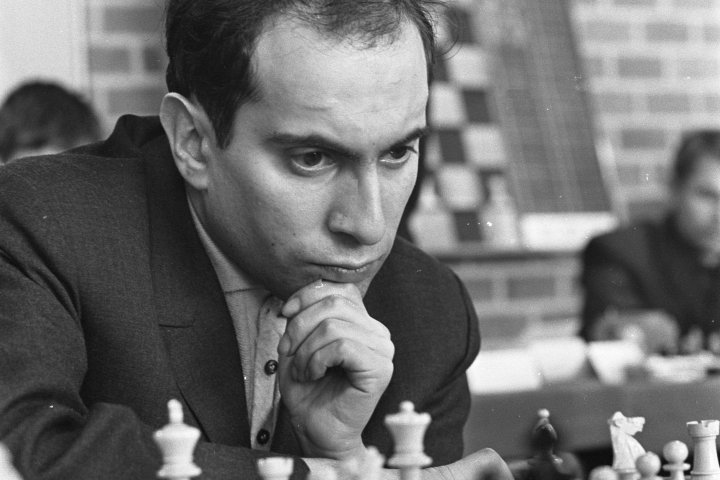
Mihail Tal | Photo: Dutch National Archive
This meant that for the fifth time, the Candidates Tournament of the next cycle was to be for the right to challenge Botvinnik. This edition came to be the most controversial in history.
In Curacao 1962, the Soviet Union managed to field five candidates: Tigran Petrosian, Keres, Efim Geller, Victor Korchnoi, and Mikhail Tal. Opposing them were Fischer and Pal Benko of the United States of America, and Miroslav Filip of Czechoslovakia.
Petrosian managed to win the event, but under circumstances that aroused Fischer's suspicions. Petrosian, Keres, and Geller had been agreeing to short and easy draws, and all games among them, in fact, ended drawn. This prompted Fischer to cry collusion and pre-arrangement of games among them.
Curacao 1962 - Final standings
Fischer hadn't fully matured yet in 1962 to challenge the Soviet domination that began in The Hague 1948, but the unfortunate realities that he exposed were too glaring to be ignored. FIDE took heed and discarded the event's tournament format in favor of set matches. Qualifiers from the Interzonal, thence, were to eliminate each other in matches until only one candidate was left standing. Remaking the competition, and leaving each candidate to fight for himself, FIDE hoped, would eliminate collusion.
The Candidates Tournament, thus, turned into the Candidates Matches beginning in the 1963-1966 cycle. While the new system, perhaps, was a lesser test of the strength of one candidate against all the others, it gave greater thrill and excitement as the matches climaxed. Each round was a battle of survival between two top masters.
After Petrosian took the crown in 1963, all the champions that came after him up to the early 1990s rose to the world championship through the Candidates Matches. In the 1969-1972 cycle, Fischer came of age and his drive for the title resulted in what is arguably the most spectacular performance ever in the Candidates Matches. He beat Mark Taimanov and Bent Larsen 6-0 in succession, overcame Petrosian in the finals, 6.5-2.5, and dethroned Petrosian's successor, Boris Spassky, 12.5-8.5 in the 1972 World Championship Match.
If Garry Kasparov wasn't the whirlwind that Fischer was, his rise as a challenger led to the most bruising world championship matches of the modern times. In battles between generations, he beat Korchnoi and Smyslov in the semi-finals and finals of the 1982-1984 Candidates Matches respectively. Kasparov moved on to play five world championship matches against Anatoly Karpov, the first of which was aborted. These epic matches, truly wars of attrition in a peaceful sport, have established Kasparov and Karpov as two of the greatest in history.
In 1993, Nigel Short defeated Jan Timman in the finals to become Kasparov's first challenger after Karpov. Kasparov and Short, however, broke away from FIDE due to differences over their match's arrangements and formed their own organization, the Professional Chess Association (PCA). Kasparov defeated Short in a match they privately organized to retain his title.
Kasparov and Shorts' breakaway, thereafter, threw confusion into organized chess, and both FIDE and the PCA ran parallel events to determine their organization's world champion. Between 1993 and 2006, there existed a FIDE World Champion, and a Classical World Champion as Kasparov's successor.
Suffice to say that in 2006, the chess world was reunified when the FIDE World Champion, Veselin Topalov, faced the Classical World Champion, Vladimir Kramnik, in a reunification match. Kramnik won amid much controversy. Kramnik, in turn, was obliged to play Viswanathan Anand in 2008 as part of the conditions of the complicated reunification process. Anand won to re-establish the bloodline between him, the only existing champion, and the first world champion, Wilhelm Steinitz.
In 2013, or fifty-one years after Curacao 1962, FIDE revived the Candidates Tournament. Much had changed, however, for the same three-year world championship cycle to be reinstituted. Gone was the Interzonal, and FIDE drew altogether new conditions for qualification to the tournament. As had already been the norm, rapid and blitz games were utilized as tie-breakers for the event, including the World Championship. Cutting edge technology and powerful computers had made everything about the modern world faster, and chess had to march in step.
Magnus Carlsen won the Candidates Tournament of 2013 and defeated Viswanathan Anand in the World Championship Match late that year to become chess' latest and current World Champion.
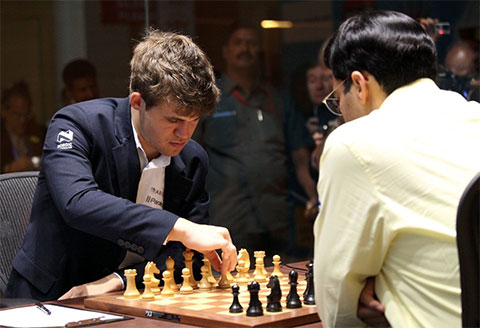
Magnus Carlsen and Vishy Anand at their World Championship match 2013 | Photo: Anastasiya Karlovich
FIDE then adopted a two-year world championship cycle and held Candidates Tournaments in 2014, 2016, 2018, 2020 (second half rescheduled in 2021 due to the COVID pandemic) and 2022. These produced title contenders in Anand, Sergey Karjakin, Fabiano Caruana, and Nepomniachti respectively, but Carlsen has withstood all their challenges. These successful title defences, along with his utter domination of the game in whatever form - classical, rapid or blitz - has established him as one of the greatest, if not the greatest in history. If he has indeed relinquished his title, he may one day step into the Candidates Tournament again to reclaim it.
For seventy-two years, the Candidates Tournament and Candidates Matches have been the pathway towards the world championship, but they have been more than just sporting events. They have become stages where chess' most memorable battles have been played, and where its finest players have been seen in triumph and defeat, and in glory and agony as they pursued greatness and excellence. For as long as chess will seek its champion, the Candidates Tournament will remain to be so.
Notable games:
Keres vs. Kotov
The most spectacular game of the very first Candidates Tournament, Budapest 1950. Keres surprises Kotov with an early, devastating Knight sacrifice.
Geller vs. Euwe
A masterpiece of Zurich 1953. The former World Champion, Max Euwe, uncorks a brilliant counter-attack based on a clever deflecting rook sacrifice.
Averbakh vs. Kotov
Another masterpiece of Zurich 1953. Kotov plays an intuitive sacrifice, with the sacrificed piece being no less than the Queen!
Tal vs. Smyslov
Tal's brilliancy prize-winning game in the third Candidates Tournament, Zagreb, 1959. Tal's purely intuitive attack leads to a decisive material advantage.
Karpov vs. Korchnoi
Karpov brilliantly mixes strategy and tactics in this highly celebrated Sicilian Dragon game of the 1974 Candidates Matches.
Smyslov vs. Ribli
The most memorable game of the 1983 Candidates Matches. Finding himself with an isolated pawn, Smyslov plays dynamically and executes a beautiful attack.
Links
More articles by Eugene Manlapao
